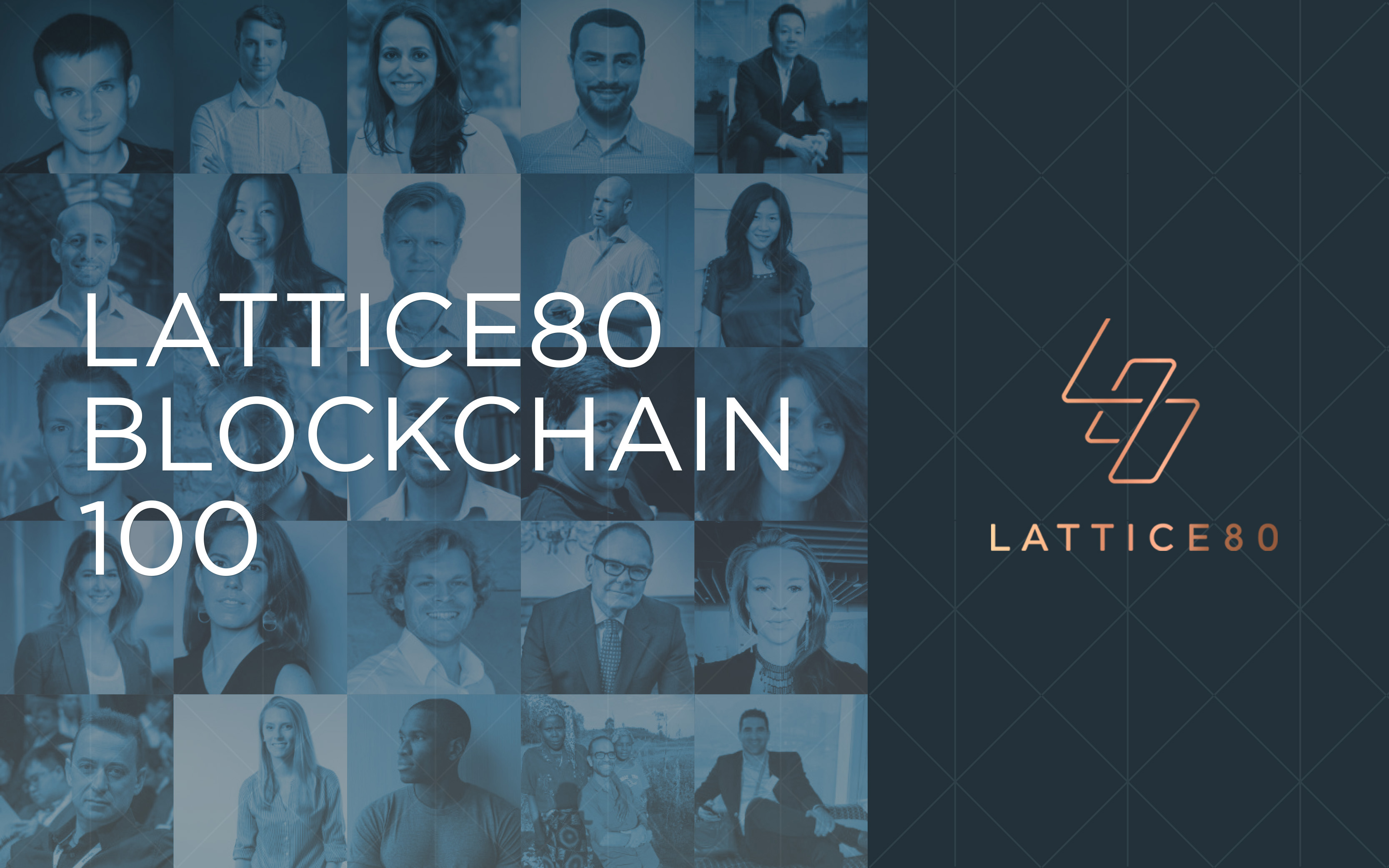A report by LATTICE80 on the people to know and follow in blockchain globally. Includes founders, techies, people in government and regulatory bodies, and more.

What an year 2017 it has been for blockchain technology! We went from explaining the technology simply as ‘distributed ledger technology’ to a more simpler ‘the technology behind Bitcoin’ (which is not necessarily more descriptive) — all thanks to everyone and their uncle talking about the rapid skyrocketing prices of cryptocurrencies like Bitcoin, Ripple and Ether. The mainstream media amplified this craze with pens running out of ink and worn out keyboards becoming a common sight in newsrooms, while ‘retail investors’ joining the cryptocurrency trading craze to make a quick buck.
Fabric Ventures reported that decentralised projects raised $5.6 billion by way of Initial Coin Offering (ICO) in 2017. Access to capital using this model helped many projects to crowdsource their funding, while this fundraising model remains largely unregulated leaving a scope for several scams that have been reported through the days. Investors join in expecting high returns when tokens gain acceptance over time. Average return from all ICOs combined was around 13 times the original investment in dollars, while ETH and BTC grew by 7.7 and 4.9 times over the year respectively. Access to capital also does not ensure that a project will be successful on all fronts. Out of 913 token sales studied by Fabric, 435 (~48%) completed successfully, 347 (38%) sales did not report their results, and 131 (~14%) couldn’t meet the minimum threshold targets.
This growth in popularity of blockchain technology has resulted in the technology being called by some to be the most revolutionary development in modern times.
Ripple‘s solutions like RippleNet aim to increase the speed of payment transactions at high volume. Likened to the SWIFT messaging system, RippleNet decentralises processes using xCurrent, xRapid and xVia.
Fujitsu in its partnership with IOTA demonstrates how component and process data can be tracked and unalterably saved to the IOTA Tangle in a Supply Chain Management context. Taipei City government in Taiwan has partnered IOTA to develop its Smart City Living Lab project with initiatives like TangleID — to relieve citizens from worries of identity theft or fraud whether through voting, providing background medical record information, or by using any government-related service — while also exploring the areas of inter-organisation and inter-city data exchanges, and healthcare.
Ethereum remains to be the most popular blockchain platform for the development of dApps (decentralisedApps). In January 2018, it was reported that 91.2% of token market capitalisation was owned by the Ethereum platform.
Blockchain technology companies are innovating to disrupt the traditional way of doing things. The potential of the technology is now recognised and accepted by large organisations and governments (even if they remain sceptical about cryptocurrency). Forward thinking regulators are studying ways to allow for innovation to continue, as respective governments explore and adopt the technology themselves. Leading this charge are people from all over the world.
LATTICE80 presents this report on some of the most important people involved in innovation and growth of the blockchain ecosystem that you must follow to follow this technology into the future.
Close to half of the people featured in this report are from the United States, 24 from the United Kingdom and Europe, 16 from Asia, and 22 women out of a total of 100 leading the blockchain ecosystem.
LATTICE80 Blockchain 100: http://www.lattice80.com/lattice80-blockchain-100-report/ PERMALINK
Hi! I am a robot. I just upvoted you! I found similar content that readers might be interested in:
http://www.lattice80.com/lattice80-blockchain-100-report/
Downvoting a post can decrease pending rewards and make it less visible. Common reasons:
Submit